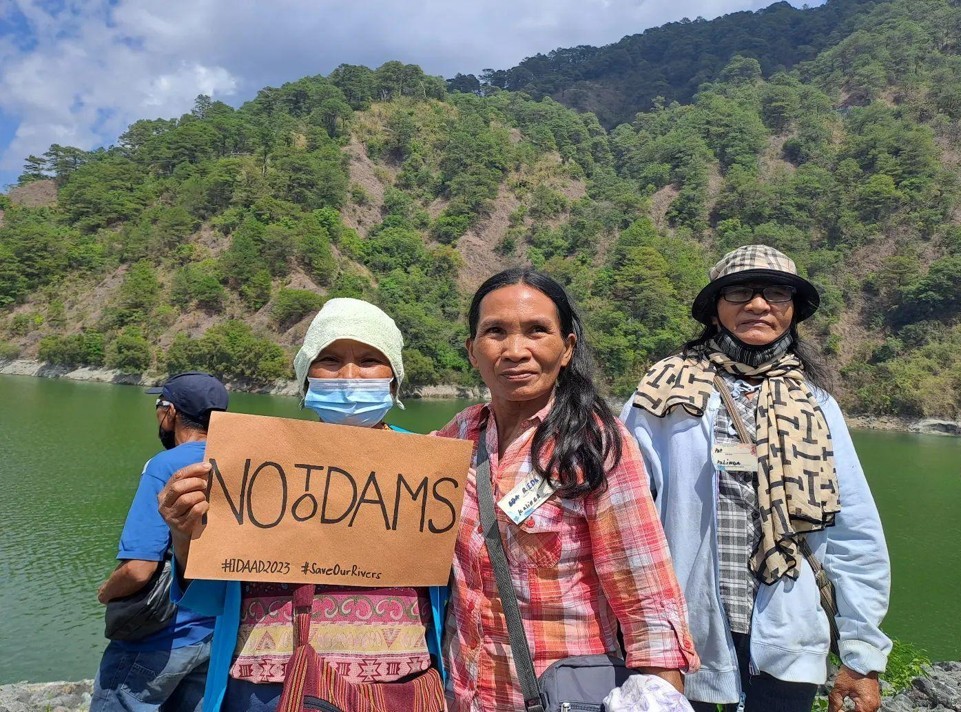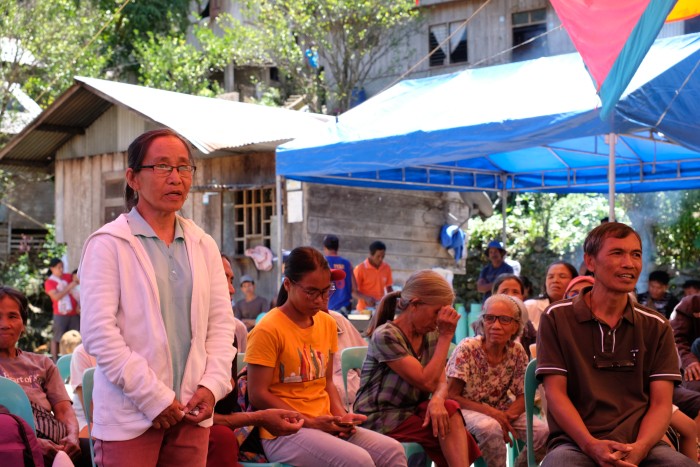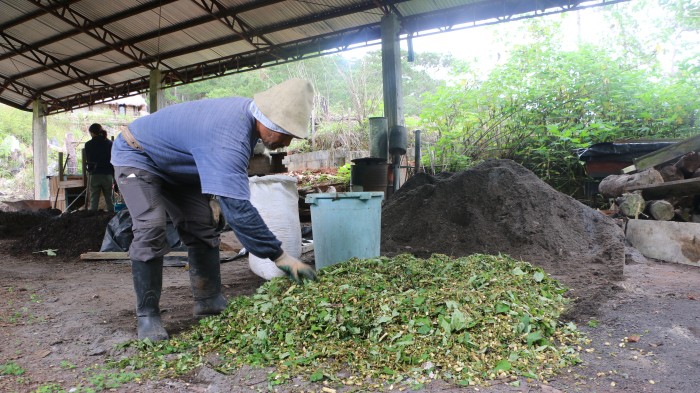Cordillera Day: Solidarity as a response to injustice (part 2)
Apr 24, 2025

Solidarity does not stop at an anniversary. In a previous article, we looked back on 30 years of cooperation with CDPC (Center for Development Programs in the Cordillera) and the Province of East Flanders. Now we are building on that history and looking ahead. Our Filipino partners are under severe pressure: NGOs are being framed as terrorist strongholds and working with indigenous communities is subject to growing repression. Why is international solidarity so urgent today? Find out in this second part of our series.
During a visit to Belgium, Rhoda and Julie, our colleagues from CDPC, talk about the hostile environment they work in. The Philippine government under President Roberto Duterte (2016-2022) has tightened control over NGOs, and current President Ferdinand Marcos Jr. is deliberately fostering a culture of fear. Rhoda: “Our biggest challenge is ‘red tagging’, the government's accusation that we support armed left-wing rebels. A number of our organizations, such as the Cordillera Peoples Alliance, have already been falsely accused of financing terrorism.”
“Even small actions such as distributing food during the coronavirus lockdown can be dismissed as 'aiding terrorists'.” Julie Mero (director of CDPC)
Julie adds that even small actions such as distributing food during the coronavirus lockdown can be dismissed as ‘aiding terrorists.’ There is constant surveillance and many in the sector are at risk of being prosecuted. Rhoda adds that even small actions such as distributing food during the coronavirus lockdown can be dismissed as 'aiding terrorists'. There is constant surveillance and many in the sector are at risk of being prosecuted. This criminalization of solidarity work makes it difficult for organizations to provide basic support to communities that are already under pressure.

Unfortunately, the Belgian context, with the current government only wanting to shape international cooperation based on its own interests, is not conducive to working on human rights. The 25% cuts to our sector confirm this. It has brought discussions on international cooperation to a head.
Rhoda responds: “Countries in the Global North[1] have grown economically through the exploitation of other, often indigenous, people and the plundering of natural resources. This is social injustice that continues to be felt on the ground today. It has become entrenched in social injustice in places such as the Philippines. As long as this inequality exists, international cooperation will remain necessary. The promised 0.7%[2] of gross national income must be enforced.”
“Let's not get bogged down in group egoism.” - Eddy Couckuyt (former deputy for the Province of East Flanders)
Eddy Couckuyt, who as a former deputy for the Province spent many years promoting cooperation, also regrets the political trend at the federal level. “The importance of solidarity has diminished. We must be careful not to get bogged down in group egoism.” Po: “Global cooperation with other regions and organizations such as CDPC is important; it gives us a more holistic and realistic view of the transitions we are facing. Our food system is responsible for 60% of biodiversity loss. If we really want to commit to fair and sustainable development worldwide, we must adapt our systems and work together in international solidarity.”

Solidagro agrees that the 0.7% contribution is the absolute minimum for international cooperation, but that we should not focus solely on that. The Global North takes so much more from the Global South through unfair trade relations and raw material extraction. A different mindset is needed among our governing parties, but also among the population. International cooperation is not a burden, but a moral and political duty and an opportunity to tackle global problems such as climate change and an unjust food system.
Agroecology in action
In our partnership, we fight against inequality and empower communities to determine their own future, with agroecology as one of the pillars. This includes small investments, training, and support for the struggle for access to land, water, and seeds. Julie highlights the challenges facing agroecology today. These challenges are closely linked to the struggles of indigenous peoples.
“As global citizens, we must put pressure on our governments to recognize and respect the rights and power of indigenous peoples,” says Julie Mero (CDPC).
Philippine policy is focused on international free trade and works closely with private companies that invest in large mining projects and the construction of dams for electricity. In addition, climate change, resulting in increasing droughts and typhoons, among other things, is putting additional pressure on agriculture and the many communities that depend on it. Not only for their own food, but also for their income. In 2022, 24% of the Philippine workforce was employed in agriculture. (source: psa.gov.ph) By comparison, in Belgium, this figure was 1.18%. (source: Statistics Flanders, figures on demand)

To address these challenges, CDPC focuses on strengthening resilient agricultural practices and securing a more stable income for farmers. Julie: “Indigenous farmers are the first victims of global warming, even though they protect biodiversity and ecosystems through agroecological practices. As global citizens, we must put pressure on our governments to recognize and respect the rights and power of indigenous peoples.”

Rhoda: “Land is life, and without land there is no life. Protecting land and traditional agriculture is therefore vital. Possible solutions lie in the use of traditional rice varieties, the cultivation of alternative crops such as sweet potatoes, diversification of agricultural methods, and improved irrigation techniques. By supporting these strategies, we are contributing to a more sustainable future for both local communities and the planet as a whole.”
—
Photo above: In 2023, indigenous communities in the Cordillera and Sierra Madre protested against hydropower projects that threaten their rivers, ancestral lands, and way of life. © CDPC
[1] In the field of international cooperation, the terms 'Global North' and 'Global South' replace the traditional North-South divide, which perpetuates the narrative of aid and maintains inequality. Although the terms are useful in a systemic analysis of power inequality, they do not help to break down entrenched North-South relations. (source: dekoloniseren.nu)
[2] Helena refers to the promise made by the United Nations in 1970 to allocate 0.7% of GNI per country to international cooperation. In 2023, Belgium reached barely 0.4%. In the future, a further 25% will be cut. See also this article.






